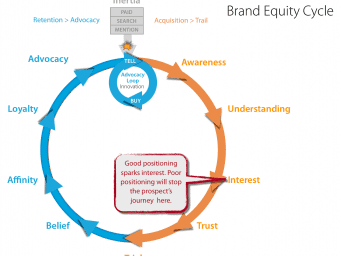Why bother monitoring buzz?
Can you imagine a marketing manager letting brand-related websites, endorsements, editorials, images, or videos be broadcast without revie...
28 Sep 2010 5448 Views
Can you imagine a marketing manager letting brand-related websites, endorsements, editorials, images, or videos be broadcast without review or approval? I can’t. Companies want to control the message because the message shapes the perception of their brand. And the brand is their most valuable asset.
Until around 2005, companies had this type of control. That’s because most of the content related to their brands was produced and published by them. Very little made it into mass media without them controlling it. But then something happened: Media became social. People, like you and I, became media outlets. We could publish all of the aforementioned items without the company even knowing. We could reach millions of people doing it. What’s more, our word is generally more influential than the company’s word. So what we say matters.
The sum of all those things being said by all of us on the web about a particular brand is collectively called buzz. It may take the form of blog posts, tweets, YouTube videos or a thread in a forum.
There are two ways to look at buzz. On the one hand, it is a barometer of the public’s perception of your brand. So you want to measure it. But just as important, it is arguably the most powerful force shaping those perceptions as well. So you want to manage it. Either way you look at it, buzz is important in building and maintaining brand equity.
Companies cannot control buzz before it goes out. But they can manage it after it comes out – if they can hear it. That’s what buzz monitoring does: It shows you all the stuff that is shaping perceptions of your brand in the market so you can manage it and measure it.
Working with buzz, I find it helpful to make a distinction between buzz monitoring, buzz management and buzz measuring.
Monitoring is watching or recording the buzz as it unfolds, like keeping an eye on Tweets or identifying blog posts that mention your brand.
With proper monitoring, you can manage buzz in several ways. Reacting to it in time can help amplify and encourage the good stuff. You can also address complaints or misinformation and help mute the bad stuff. And you can do it in real-time (or close to it).
Measuring is looking back at a week or month of monitoring results and identifying trends or reactions to marketing actiivties. With proper measurement, you can report on buzz to learn about your brand and your competition’s brands. This intel can help you deliver greater value and become more competitive.
Why bother to actively monitor buzz? For the same reason you would bother to actively manage your brand. Because in our social world, buzz management is brand management.And to manage buzz you need to monitor.
Like this post? You'll find more marketing insights in my new book: International Brand Strategy: A guide to achieving global brand growth, now available from booksellers globally. Order your copy here.







One replay
Good stuff as per usual, thanks. I do hope this kind of thing gets more exposure.